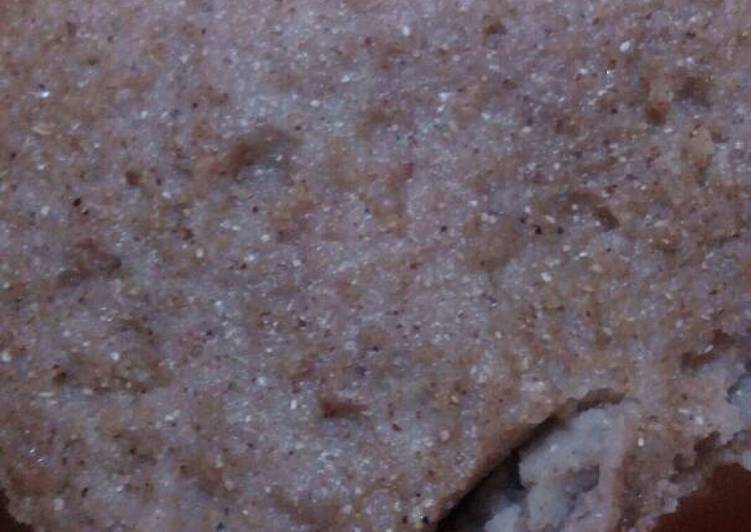Easiest Way to Spring Perfect Ugali wa wimbi (sorghum)

Easiest Way to Spring Perfect Ugali wa wimbi (sorghum) Delicious, fresh and tasty.
Ugali wa wimbi (sorghum). Then add the flour and stir briskly with a wooden spoon. Millet porridge (also known as "uji wa wimbi" in Swahili) is our star in the morning, because not only is it healthy, but also really easy to make. Making this porridge takes about six minutes to cook and is a really quick, healthy and delicious recipe.
This is made using millet flour.
Millet flour is made from grinding millet grains.
It is gluten free and is of high nutritionally value.
You can cook Ugali wa wimbi (sorghum) using 2 ingredients and 4 steps. Here is how you cook that.
Ingredients of Ugali wa wimbi (sorghum)
-
It’s of Sorghum flour.
-
It’s of Water.
Uji Wa Wimbi (Yeast African Porridge).
African ugali wimbi served with (terere)fried with minced meat. terere, onion, tomatoes, mince meat, wimbi flour, maize flour, water.
Uji Porridge Flour Kenya Wimbi Millet Sorghum Baby Adult Healthy Flour (Nairobi) by Zawadi.
Uji, also known as the Kenyan Fermented Porridge, is the ultimate comfort breakfast food which is packed with probiotics.
Ugali wa wimbi (sorghum) instructions
-
Boil the water.
-
Then add the flour and stir briskly with a wooden spoon.
-
Cook to a firm texture.
-
Serve hot.
It is made of dried maize, millet and/or sorghum that is made wet with water and left to ferment for a few days before cooking.
The main foods that can be made from sorghum are ugali and porridge.
But you can mix sorghum with other foods or cook it alone to make makande , pilau, chapatis, buns, bread, biscuits, and the local brew called togwa ( Editor's note: makande is meal which is made from maize and beans, but can also be made with sorghum and beans or pulses, or.
This posho mill grinds not only maize, but millet or wimbi as well.
Wimbi is also called bulo, obulo or obule (Luhya).

